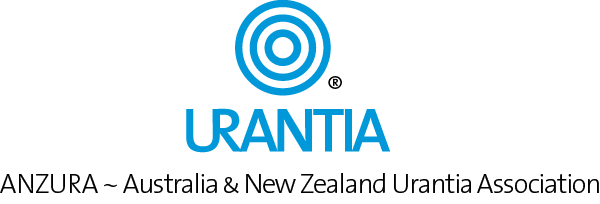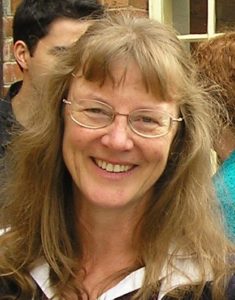 The ANZURA conference, held in new Zealand 3rd to 6th October this year provided the chance for New Zealand readers finally to take their turn in hosting readers for a long weekend of communing, conferring, considering the gems in The Urantia
The ANZURA conference, held in new Zealand 3rd to 6th October this year provided the chance for New Zealand readers finally to take their turn in hosting readers for a long weekend of communing, conferring, considering the gems in The Urantia 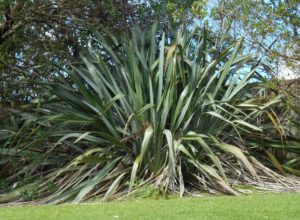 Book from many different perspectives, creating new friendships, consolidating old ones, and celebrating just being together with people who share a passion for the great truths in our Book, and for sharing these truths in our various communities.
Book from many different perspectives, creating new friendships, consolidating old ones, and celebrating just being together with people who share a passion for the great truths in our Book, and for sharing these truths in our various communities.
We would like to thank all the readers who journeyed from far and wide and who made this conference such a great and memorable experience. The theme of the conference focused on a celebration of God’s gifts, and how best to use these gifts to live a creative live.
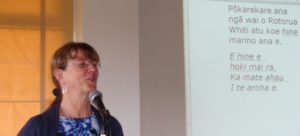 We began with a welcome ceremony on Friday night, which included a traditional song rewritten with our own words, and an acknowledgement of all the spirit beings who were undoubtedly gracing us with their presence.
We began with a welcome ceremony on Friday night, which included a traditional song rewritten with our own words, and an acknowledgement of all the spirit beings who were undoubtedly gracing us with their presence.
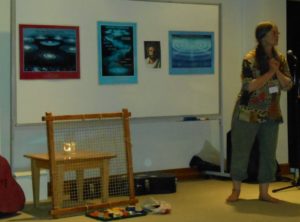 People got to know new friends and Rosalie Steward, our resident storyteller, told us a tale about flax in the old days in New Zealand, and how it connected the early settlers and the Maori people. She introduced a weaving frame—part of the creativity theme—which all attendees young and old had a great time working on over the next few days.
People got to know new friends and Rosalie Steward, our resident storyteller, told us a tale about flax in the old days in New Zealand, and how it connected the early settlers and the Maori people. She introduced a weaving frame—part of the creativity theme—which all attendees young and old had a great time working on over the next few days.
The conference program began on Saturday with two presentations. Marion Steward opened with an overview of the gifts from God and a wide-ranging exploration of what it means to be creative. In keeping with the focus on creativity, we introduced a discussion session straight after each presentation, which enabled people to give feedback on what was presented, and discuss the ideas while still fresh in our minds.
Julian McGarry followed with a very insightful and in-depth presentation on the Divine Gift of Mind, our arena of creative living.
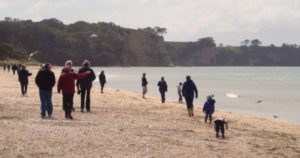 After a brisk beach walk, in somewhat typical Auckland weather, we launched into Open Space, another innovation to our conferences.
After a brisk beach walk, in somewhat typical Auckland weather, we launched into Open Space, another innovation to our conferences.
Readers took to this well, and there were some very thought provoking topics proposed, such as how to pray more effectively, how to share The Urantia Book ideas with others, and the power of 3. The main drawback was that you had to choose which ones to go to, but there was also the possibility of moving from one to the other, to get a taste of all of them. It was a great informal way to give people an opportunity to introduce their favourite topics and for them to gain feedback.
Later in the day there was a sharing session to hear the main ideas that emerged from each Open Space discussion.
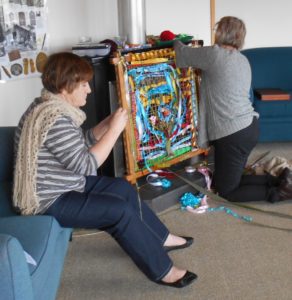 The worship session in the Chapel on Sunday morning was a deeply spiritual and well-conducted experience organised and run by Neville Twist, with some beautiful choral music. It was a small intimate venue that helped to create a wonderful sense of fraternity, and was a special time of spiritual communion for us all.
The worship session in the Chapel on Sunday morning was a deeply spiritual and well-conducted experience organised and run by Neville Twist, with some beautiful choral music. It was a small intimate venue that helped to create a wonderful sense of fraternity, and was a special time of spiritual communion for us all.
The study group session that followed focused on Paper 111: The Adjuster and the Soul.
In the afternoon Mark McEwan entertained and informed us with a very interesting presentation on Music and Spirituality. After a very well-presented conference dinner, we shared our favourite parts of the book—it is so interesting how some sections are beloved by all, and others appeal to distinct personality types.
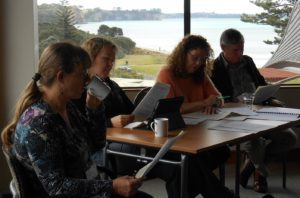 Running through all the organised sessions of the conference, as always, were the informal gatherings.
Running through all the organised sessions of the conference, as always, were the informal gatherings.
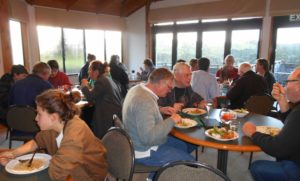 The dining room layout, with round tables and buffet-style meals, encouraged mixing by table swapping and chatting while queuing for the self-serve courses. The venue had many places for small groups to gather, usually with great views over Auckland Harbour.
The dining room layout, with round tables and buffet-style meals, encouraged mixing by table swapping and chatting while queuing for the self-serve courses. The venue had many places for small groups to gather, usually with great views over Auckland Harbour.
The final morning session gave all attendees the opportunity to reflect on their inner experiences of the conference, and some fascinating art works were created collaboratively as a result.
We all felt that this conference was a great success in many ways, but most of all in inspiring readers to connect more with their Adjuster by finding time to pray and worship, and becoming more aware of our superconscious mind. We New Zealanders look forward to the next few conferences in Australia, and to taking our turn again as hosts in six years’ time.
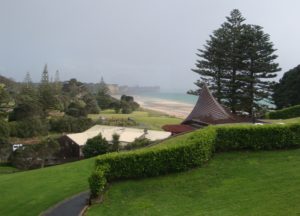
Open Space is a dynamic, self-organising meeting process that gives participants the opportunity to put the ideas that really fire their imagination onto the programme. After a brief introduction on how it all works, each person is invited to announce to the group the topic that they have real pas-sion for. Their name, and the name of their workshop, is written on a post-it note and then posted on a Bulletin Board. When everyone has defined their topic, group participants engage in a creative process where areas of common interest are recognized and brought together. The topics, times and locations are identified on a Time/Space wall chart and Open Space becomes open!
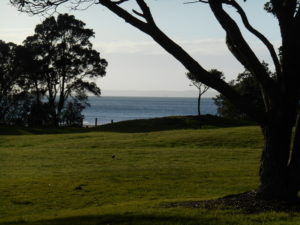
view Photo Gallery

